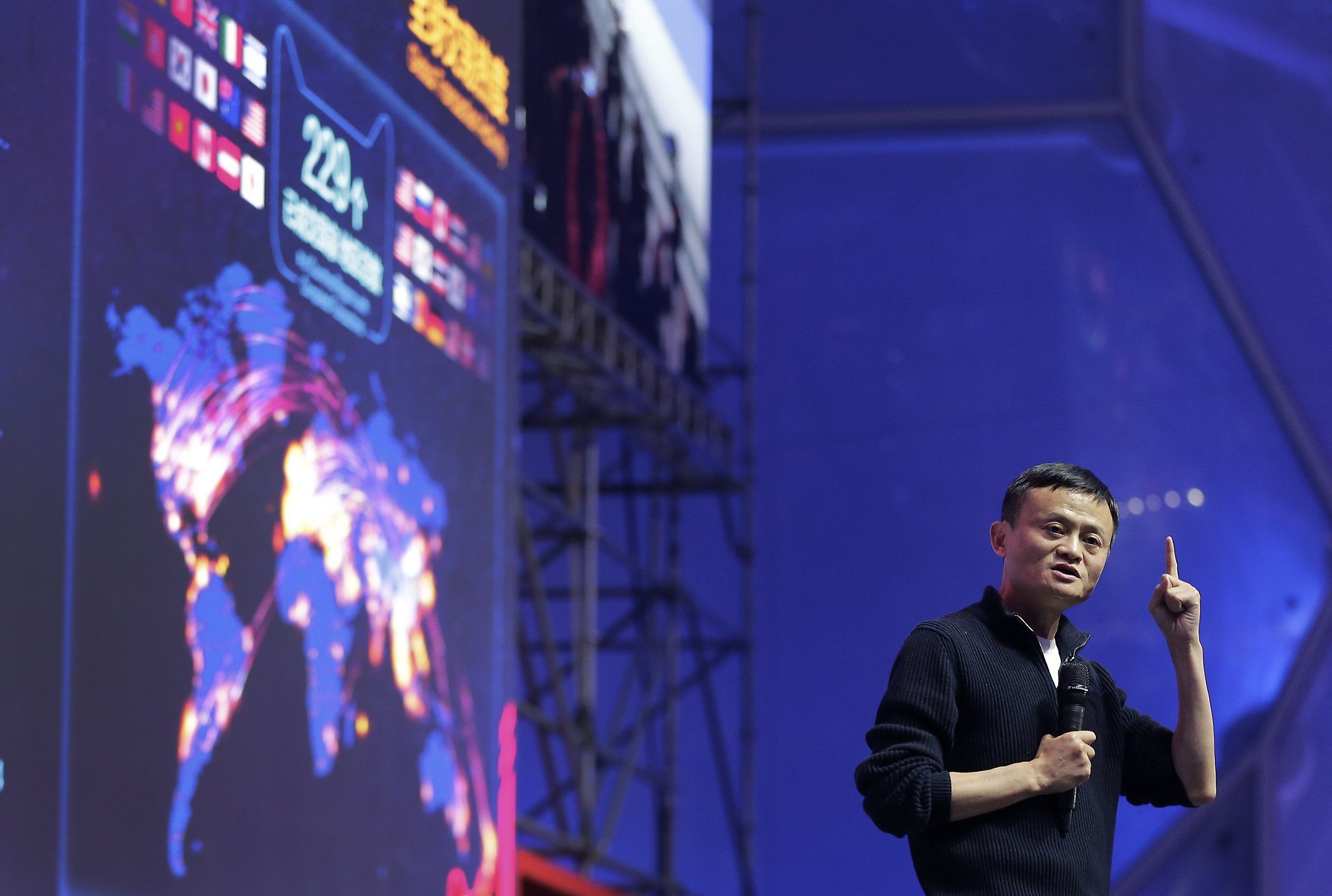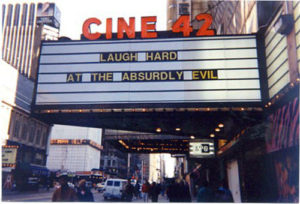Do you find this unnerving? Slightly terrifying? No big deal? A shuddering and surreal sign that all is not well in the world? Perhaps you should.
I’m talking about Singles Day, of course, AKA “the world’s biggest shopping day,” as run by that same world’s biggest, most powerful e-commerce site: China’s Alibaba.
Think of Singles Day as Black Friday colliding with Cyber Monday in an orgasmic nightmare cataclysm of apoplectic consumerist hysteria, times four. Indeed, Alibaba moved an Earth-shaking $25.3 billion worth of product — up from $16 billion last year — all in one day. (By comparison, Amazon moved just $1 billion in stuff during its last Prime Day, AKA “our biggest day ever.” This year, Alibaba cleared $1 billion in the first two minutes.) That $25 billion, like it matters, is higher than the GDP of Iceland.
At one point, the site was processing 325,000 orders per second. The televised gala celebrating the epic weirdness was directed by the guy who produced the Oscars. Nicole Kidman was there, on stage with Alibaba Group chairman Jack Ma, because of course she was. Pharrell Williams sang a song, most likely “Happy.” The world is very weird.
Everything is staggering, and nothing matters. It is barely possible to imagine the titanic scale of human labor, ingenuity and genius-level technological advancement required to make something like Singles Day happen. What sort of massive logistical miracle is required to shove hundreds of millions of products to tens of millions of people in a 24-hour window? Is this really where we, as the most supremely advanced species on Earth, are directing our most ingenious talents, our most valuable creative resources? So it would appear.
One thing we know: The astonishing audacity of hyper-consumerism has frayed the nerves and shattered the bones of the 21st century. Our staggering addiction to glorious human consumption slams up against everything we appear, as a species, to be doing wrong in the world: massive resource abuse, blinding pollution, unstoppable climate change, massive wealth inequality, shameless Wall Street corruption, furious gun violence, palpable spiritual disconnection, the death of fundamental kindness and, of course, the invention of the vulgar hate-beast known as Trump.
Do we care? We do not care. Or rather, we care a lot, but we do not know what the hell to do about it, and millions feel entirely powerless to stop it, as we merely await what feels like an inevitable and terrible collapse. Meanwhile, shopping!
While Alibaba’s sales on Singles Day were much larger than Amazon’s biggest haul to date, Amazon’s chief is still richer. Jeff Bezos boasts a net worth of $94.8 billion, topping Jack Ma’s $40 billion. This is not because Bezos (or Jack Ma, for that matter) provide a service that abets and improves the tender and needful soul of the human animal. I mean, obviously.
It is because Bezos brilliantly engorged our sense of pampered entitlement. He commodified laziness. Perhaps more than any single American in modern history, Bezos made it seem totally natural and obvious that you damn well right deserve to get whatever you want, anytime you want, without ever leaving your couch, and never you mind the countless millions of man-hours, massive carbon footprints, cheap factory labor, ridiculous over-packaging and insane technologies required to keep you from ever interacting with anyone other than the stressed-out UPS driver.
In other words, Bezos is a brilliant capitalist, but as well all know, the rich almost never gain their massive wealth through striving to improve humankind. Be not naive. They make it by exploiting it.
His post-Microsoft philanthropy aside, Bill Gates made his fortune swiping an idea from Apple and then forcing hundreds of millions of people to suffer the indignity of Windows, for years and decades. Mark Zuckerberg made his money by preying upon our innate vanity, loneliness, and need for validation. Jack Ma, who has said he’s far too busy to spend any of his estimated $43 billion, enjoys deep ties to China’s Communist Party, which help him block rival businesses and gain access to China’s exploding wealth. Warren Buffet made his billions manipulating the wealth of other people. And of course Trump made his by combining a toxic business reputation with a revolting, grope-happy reality-TV persona.
To some degree and if you’re at all sentient to the true pulse of the world, you already sense the truth: The center cannot hold. There would seem to be no imaginable way Alibaba could haul, say, $40 billion in one day next year, without the world shuddering and angels weeping blood. The karmic stress load feels far too high.
Or does it? It wasn’t long ago that all experts agreed that, say, five billion humans was far too many for the Earth to possibly sustain. And here we are, fast rushing to 10 billion (by 2050), with inadequate water and an overheating planet and no way to feed or house most of them.
Of course, if the poor and developing worlds would just learn to order some organic sandwiches from a fleet of Amazon/Whole Foods/Alibaba drones using their iPhone Xs, all would be fine.



